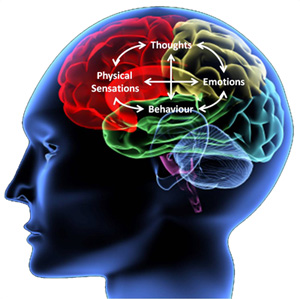
Source: pwoodford.net
Sometimes things can happen between you and a friend, or a family member, that causes a wall to be erected between you. Sometimes it’s a disagreement, someone’s actions, disappointment, self-protection–there are so many reasons we sometimes feel the need to pull away, to weaken or sever the ties that have formed between us.
I have a couple of these situations right now that are unresolved and sort of weighing on my soul and to a lesser extent, my conscience. I think sometimes I idealize my relationships with others. I want my friendships to be honest and real and true and sometimes this alienates me from other people.
I had a friend many years ago who had social anxiety and I believe, for this reason, would often flake out on me. She would say she was coming to a dinner or party or event I had invited her to, and she would spend hours on the phone with me the night before asking tons of questions about who was coming, what I was wearing, did she know everyone etc etc and then the next day, sometimes an hour before the event, she would let me know that she had gotten sick. I put up with this for a long time because I truly empathized and sympathised with her situation. I too suffer from social anxiety and I’m sure I have appeared selfish and flaky on many occasions. The thing is though, I had hoped that after a few years of friendship she could open up to me and be honest with me. I finally confronted her and she became very angry and defensive. Maybe I was wrong, and selfish and I wasn’t being understanding enough. I would not disagree with this conclusion. Nevertheless, I felt I couldn’t truly be friends with her, because there would always be this thing between us–this level of misunderstanding and distrust and….untruth. I know, it’s not fair to force someone to disclose things about themselves that they’re not ready for. At the same time, I couldn’t change the way I felt.
I think it’s this idealization of friendship that for me has been a double-edged sword. On the one hand, I have a handful of amazing friends in my life. I can tell them anything and I don’t feel judged, I know they truly care about me, respect me, trust me and strive to understand me, as I do them. On the other hand, these friends are rare gems, and it’s not often you can develop these types of friendships. To expect such an ideal means that I often end up alienating myself from others and I become incapable of developing friendships with many people. This isn’t a goal of mine in and of itself, but I do believe in the awesome power of having a good supportive social network, and being so all or nothing can prevent this from developing. Having an all or nothing approach to friendships can be a major obstacle to building a diverse social network and can mean you miss out on a lot of amazing experiences. Not everyone has to ‘truly’ understand you or know you or feel able to fully open up to you to be a great friend, to be someone you have a great time with, someone you learn from, someone who is there for you and you for them.
I guess I need to move away from this all or nothing approach if I want to sustain some of my friendships. It’s a struggle though. I truly believe that trust is crucial in relationships, including friendships, and if I feel that someone doesn’t have my best interests at heart, I don’t feel I can truly be friends with them.
Recently, a friend of mine acted in exactly this way. She met my partner for the first time and by objective accounts, was very flirty with him and displayed a great deal of attention-seeking behaviour. After this one encounter I questioned my friendship with her. I can’t be friends with a girl who acts like that, it’s exactly the type of thing that I can’t stand. I tried to let it go but she ended up confronting me, thinking something was wrong, which it was. I explained to her how I felt, and why, and she became extremely defensive. She said she couldn’t believe I thought that about her, she felt betrayed by me, she was ‘shell shocked’. She was just trying to make my partner feel welcome into our group. Now, I don’t actually believe her–I can’t based on her actions and the things she said. At the same time, I don’t think she really had bad intentions, like she was trying to break us up. Maybe she felt left out, and maybe she wasn’t used to not being the centre of attention. I’m not trying to paint her as a villain, as I don’t believe she intended to act the way she did. But that doesn’t change the fact that she did. And this makes me lose trust in her and our friendship.
A mutual friend (who is far closer friends with my friend than she is with me) told me that she doesn’t believe my friend had negative intentions at all, but she has actually spoken to her about the same thing on numerous occasions–that she is very flirty and attention-seeking in ways that are inappropriate. So, she doesn’t have bad intentions she just doesn’t seem to be aware of what she’s doing.
I can understand that, rationally, but right now, I can’t really change how I feel, as much as I might want to.




